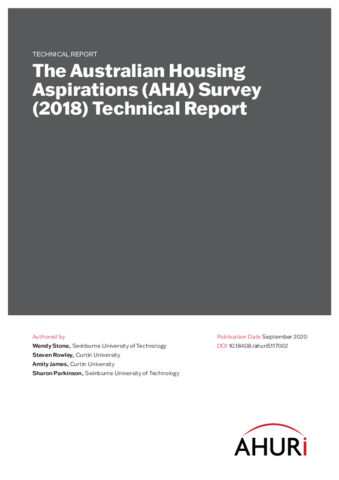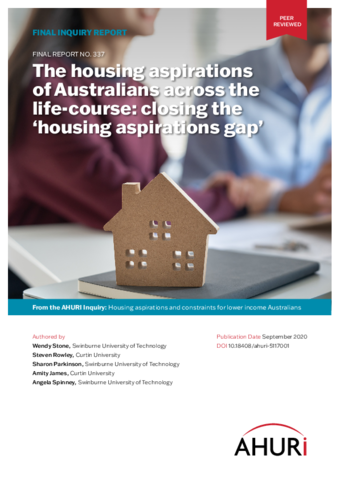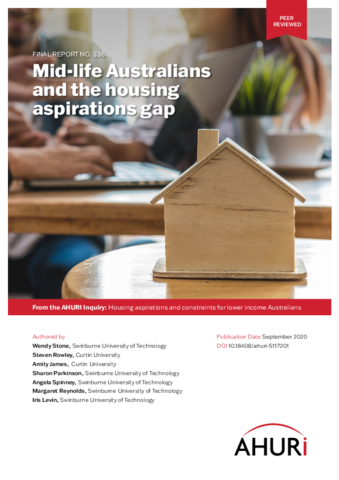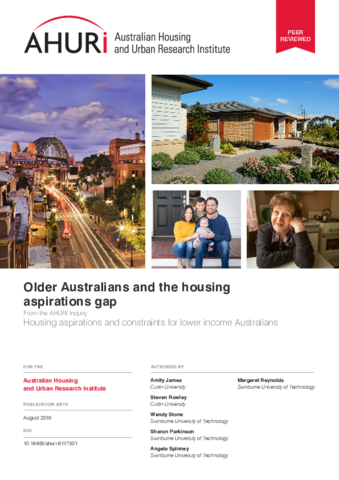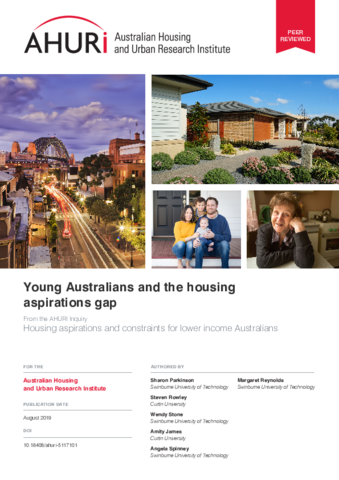This research investigates the short and longer term housing aspirations and the housing aspirations gap among ‘emerging adults’ aged 18–24 years and ‘early adults’ aged 25–34 years in order to better understand how they are linked to aspirations across areas such as education, employment and family formation.
Between 2003–04 and 2015–16 the share of emerging adults (aged 18-24 years) living with parents increased from 58 per cent to 66 per cent, while the share of early adults (aged 25-34 years) living with parents increased from 14 per cent to 20 per cent.
Few emerging adults were actively planning for their housing futures. Living with parents and group housing provided for the pursuit of other life aspirations, including study and travel, and a buffer for insecure incomes. Many young emerging adults had a ‘blind optimism’ that they would be able to achieve their aspirations, while others were acutely aware of the constraints relative to their parents’ generation.
The phase of early adulthood is viewed traditionally as a period in which careers are consolidated, relationships stabilised and raising a family prioritised. With home ownership unattainable for many, this cohort now forms the core of ‘generation rent’, characterised by extended years in the private rental sector.
At present Australia does not have a distinct housing policy addressing the housing aspirations of young adults. This research indicates an ‘enabling’ mix of assistance towards secure independence should be based around four tenure-neutral policy enablers that directly link housing policy with broader social and urban planning policy: pursuing and living near opportunities for study and work; balancing flexibility with security within the dwelling and community; providing diversity and real choice both in the dwelling and location; and moving towards independence and longer term financial freedom and security.


